History of Wolfner Library
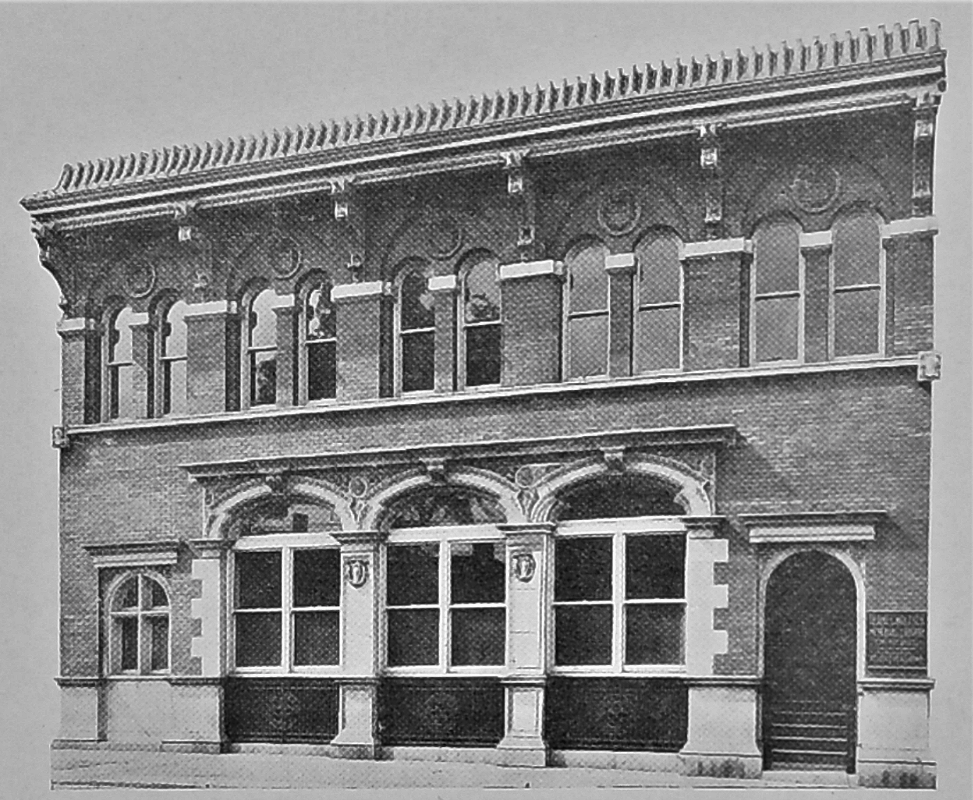
Wolfner Talking Book and Braille Library has a long history serving Missouri’s visually and physically disabled citizens. Its origins date to 1924 when Dr. Arthur Boswick formed a department for the blind within the St. Louis Public Library system. This was done at the request of the St. Louis Society for the Blind, with Edward F. Endicott organizing and directing the new venture. In 1931, the Pratt-Smoot Act established a free library service for blind adult readers, and the St. Louis Public Library was selected as one of the first eighteen libraries nationwide to serve blind adults due to its previous actions. Two years later, the National Library Service for the Blind’s talking book program was initiated to serve readers who could not read Braille, and a uniform system of Braille was created (English Standard Braille).
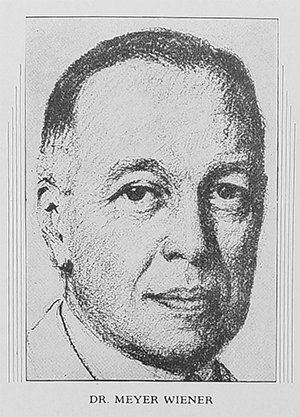
In 1936, Dr. Meyer Wiener, an eye specialist and former director for the Prevention of Blindness on the Missouri Commission for the Blind, led a group of St. Louis citizens to raise funds to create a separate library building dedicated to serving the blind. This project was necessary due to the overcrowded existing reading room for the blind. The Henry L. Wolfner Memorial Association chose to locate the facility near many blind St. Louisans and ensured it was easily accessible by bus to those in other parts of the city. This new location opened on June 7, 1938, and was named the Henry L. Wolfner Memorial Library after Dr. Wiener’s late colleague, a noted eye specialist who practiced in St. Louis for 53 years. Records from 1938 indicate that at that point in time, Wolfner Library, which was still operated by the St. Louis Public Library, held an accessible collection second only to that of the Library of Congress and featured the most extensive children’s collection for the blind in the nation. This first building to bear Dr. Wolfner’s name, located at 3842-3844 Olive Street, was added to the National Register of Historic Places in June, 2005.
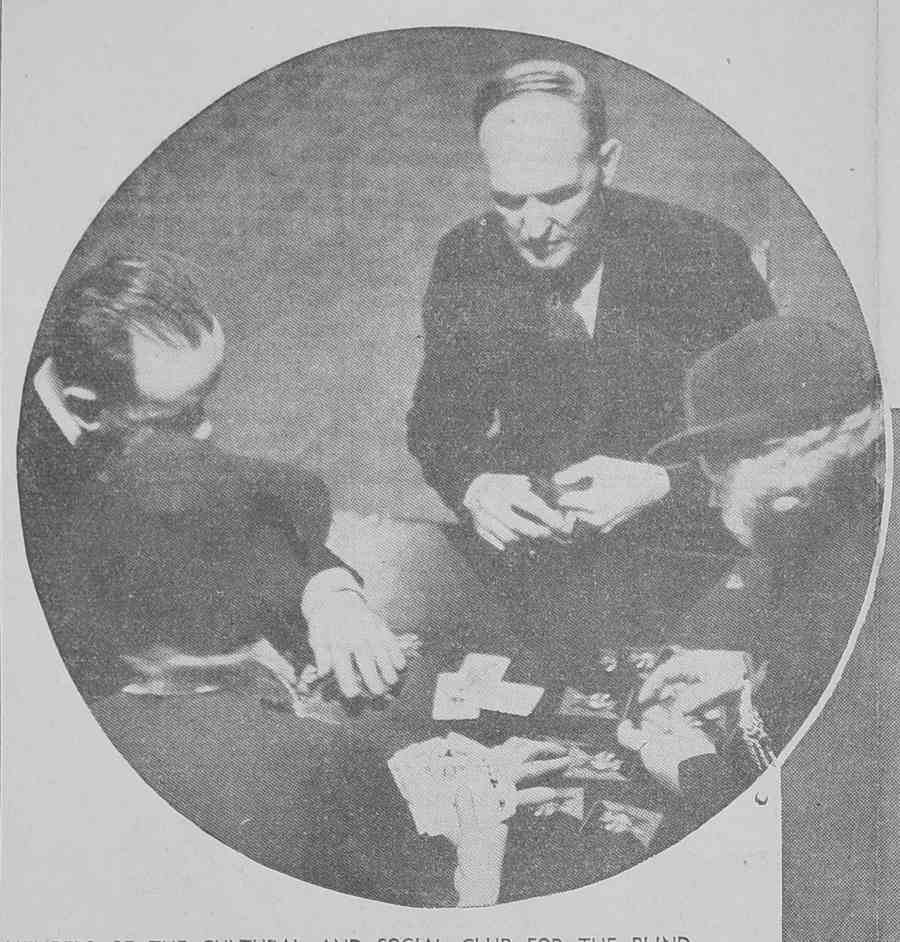
From the late 1930s through the 1970s, the St. Louis location filled both an educational and social need in the area as Wolfner Library also served as a community center for the blind. The library encompassed the basement and first floor, while the second floor served as a social center. Many societies and organizations for the blind used the library as its home base. Social events, such as dances, were held regularly. In 1939, Wolfner Library began its longstanding tradition of distributing books to the Missouri School for the Blind. Wolfner Library expanded its services outside of the St. Louis area. The patrons served by the talking book program included the states of Missouri, Arkansas (through the late 1950s), and Kansas (until 1971). The addition of free library services to children expanded the talking book program thanks to a 1952 amendment to the Pratt-Smoot Act. By 1963, the State of Missouri began to pay the St. Louis Public Library for the statewide use of Wolfner Library services. Three years later, the National Library Service for the Blind’s services expanded to cover those with physical handicaps and other visual disabilities, thus becoming known as the National Library Service for the Blind and Physically Handicapped. In 1968, Wolfner Library became the Talking Book Machine Agency for Missouri, thus issuing players directly to patrons in addition to books. Wolfner Library added the cassette program the following year, which replaced the older records and flexible discs by 2001.
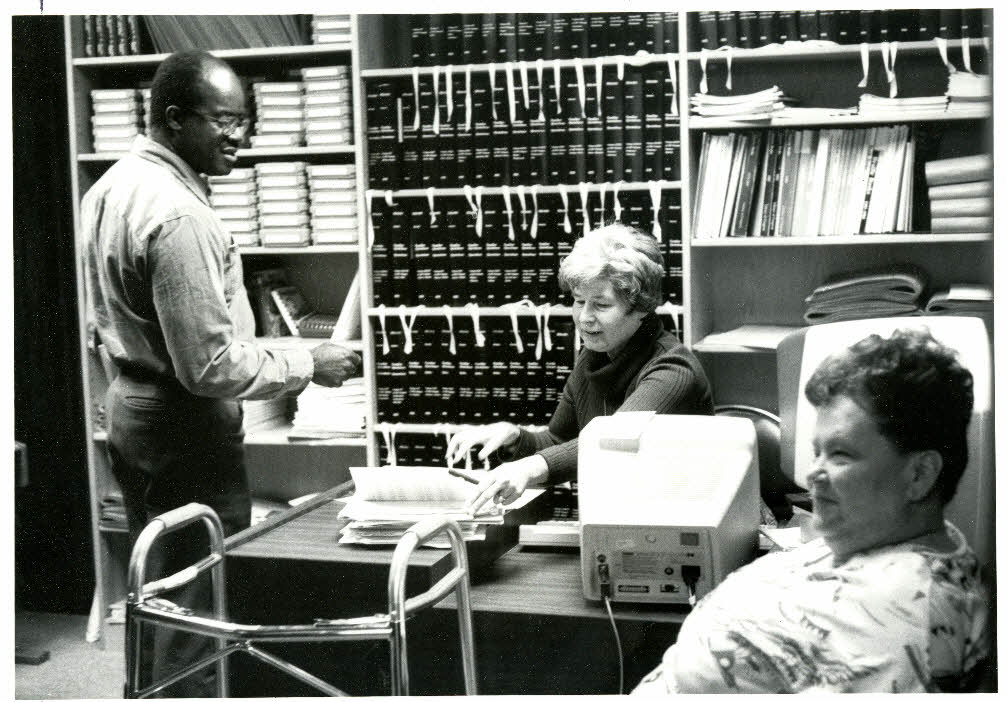
The 1970s and 1980s were a time of tremendous change for Wolfner Library. It moved locations in St. Louis multiple times before relocating to Jefferson City in 1985. In 1977, the Missouri State Library took over the administration of Wolfner Library. That same year, Wolfner Library acquired its first automated circulation system, thus becoming one of the first libraries for the blind and physically handicapped to do so. 1979 saw the formation of the Wolfner Advisory Council, which consists of individuals statewide who represent the interests of patrons to better advise the library on serving the needs of print-disabled Missourians. Following the move to Jefferson City, Wolfner Library became a division of the Missouri State Library. As part of that relocation, nine staff members also moved to the state capital to continue their work for Wolfner Library.
The library would move once again before establishing its current home in the James C. Kirkpatrick State Information Center in 1991. That same year, the entire Missouri State Library, including Wolfner Library, was placed under the administration of the Office of the Secretary of State. By 1993, thanks to the Friends of Wolfner Library, the library began offering descriptive VHS tapes for circulation. The first issue of Wolfner News was published in 1995. Two years later, Wolfner Library made its collection available to search online.
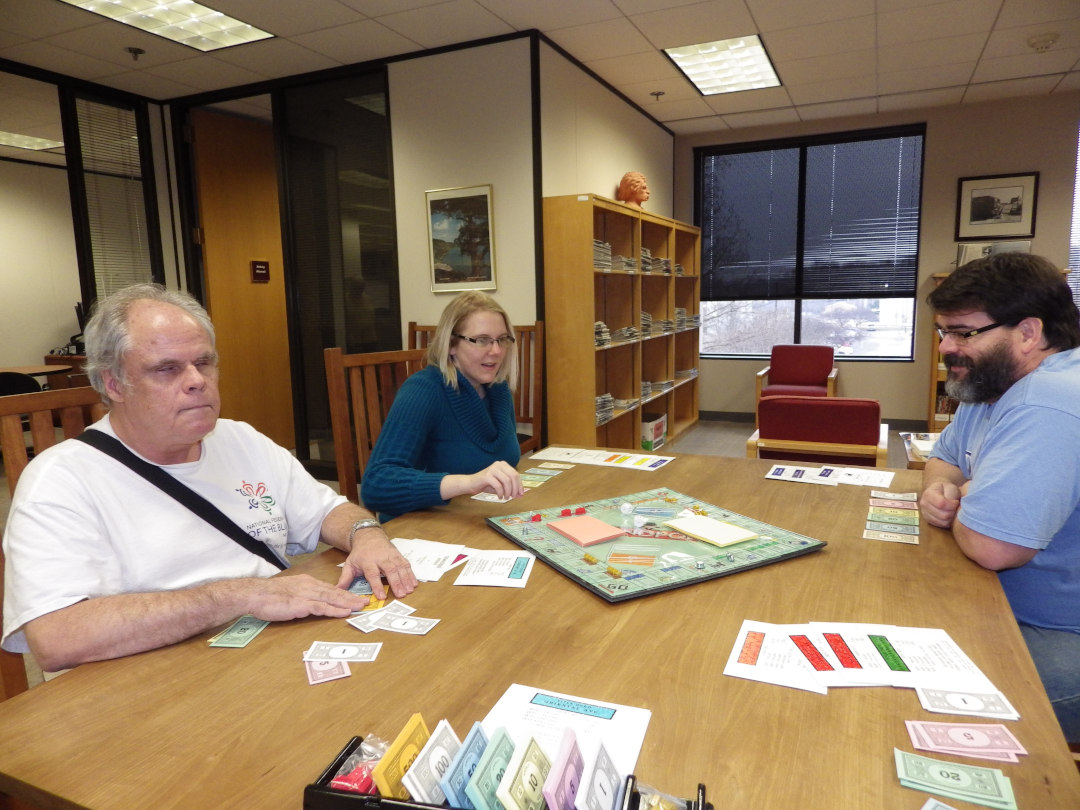
Wolfner Library continues to expand its services. To mark the new millennium, the library provided patrons with access to NFB-Newsline, which provides patrons with accessible newspapers. In 2002, the library began producing print/braille books in-house to supplement the National Library Service’s collection for children. The Wolfner Library Recording Studio debuted in 2004. In 2006, Wolfner Library offered adult patrons the first winter reading program. The Braille and Audio Reading Download (BARD) program, provided by the National Library Service in conjunction with the Library of Congress, began in 2008. In 2009, the library became one of the first to introduce the new Digital Talking Book Machines. As the availability of VHS tapes faded, the library began providing descriptive DVDs in 2012. Large print books for adults were added to the collection in 2015, joining the youth large print previously added. Wolfner Library also began to circulate print/Braille board and card games that same year. The following year, the library was able to start offering book clubs via conference call (now via Zoom or call-in) to adult patrons and started its early literacy program, Racing to Read (now titled That All Children May Read). In 2021, the library created the Youth Mail and Make program and then expanded the program to include adults in 2024. In 2023, Wolfner Library started distributing the Zoomax electronic braille reading device so patrons could download braille books for reading. Wolfner Library hopes to continue expanding its services in future years to exceed the expectations of our patrons.
To learn more about Dr. Henry Wolfner, check out this mini-biography.
To learn more about Dr. Meyer Wiener, check out this mini-biography.
To learn more about Edward F. Endicott, check out this mini-biography.
To learn more about the creation and development of the National Library Service, check out their “History” webpage.